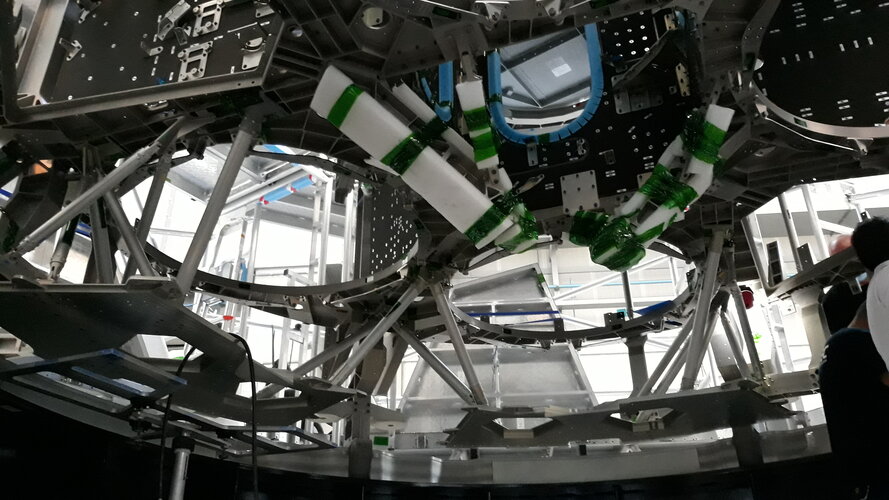
Image:
This structure is the frame and base for the European Service Module, part of NASA’s Orion spacecraft that will return humans to the Moon.
Built in Turin, Italy, at Thales Alenia Space, this is the third such structure to roll out of production. However, this one is extra special, as it will fly the first woman and next man to land on the Moon and return on the Artemis III mission by 2024.
The structure is nearly complete and acts as a backbone to the Orion spacecraft, providing rigidity during launch.
Much like a car chassis, this structure forms the basis for all further assembly of the spacecraft, including 11 km of wiring, 33 engines, four tanks to hold over 8000 litres of fuel, enough water and air to keep four astronauts alive for 20 days in space and the seven-metre ‘x-wing’ solar arrays that provide enough electricity to power two households.
Orion’s backbone will travel to the Airbus integration hall in Bremen, Germany, at the end of the month to integrate all the elements listed above and more. This third European Service Module will join the second in the series that is already in Bremen, and nearing completion, to be sent to NASA’s Kennedy Space Center next year.
The first service module is already finished and will be integrated with the Crew Module and rocket adapters to sit atop the Space Launch Systems rocket. The first completed Orion craft is scheduled for a launch and fly-by around the Moon, without astronauts, next year on the first Artemis mission.
The countdown to the Moon starts in Europe with 16 companies in ten countries supplying the components that make up humankind’s next generation spacecraft for exploration.
Read more about Orion and the Artemis missions.
Click here for original story, Backbone of a spacecraft
Source: ESA Space News